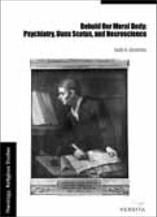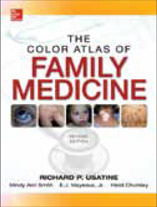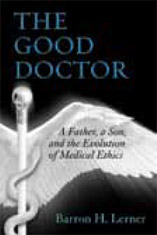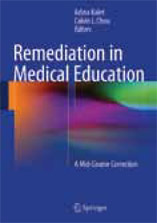Alumni in Print
 Behold Our Moral Body: Psychiatry, Duns Scotus and Neuroscience
Behold Our Moral Body: Psychiatry, Duns Scotus and Neuroscience
Sally Kasparek Severino’70
Versita: Emerging Science Publishers, 2013
www.neurospirit.net
For centuries, science and religion have been on opposite sides of the debate about the moral nature of human beings. Now science, according to Dr. Severino, is confirming what people of faith have long known: Human morality is embedded in our biology. Drawing on research in neuroanatomy, neurophysiology, and behavioral science, this book affirms the four-fold prophetic vision of morality as expressed hundreds of years ago by philosopher and theologian John Duns Scotus. It proclaims the dignity of the individual and celebrates freedom of will for moral living, stemming from the place of innate natural goodness where love prevails.
 The Color Atlas of Family Medicine
The Color Atlas of Family Medicine
Richard Usatine’82
McGraw-Hill, 2013
Dr. Usatine’s book, the second edition of this comprehensive atlas, has more than 2,000 images and 240 evidence-based chapters. It is designed to help the physician diagnose and treat the most common health problems in primary care. Each chapter begins with a patient story that ties the photographs to real stories of patients. The photographic legends are designed to connect the images to the people and their human conditions. Special sections are devoted to the essence of family medicine, physical/sexual abuse, women’s health, and substance abuse. Many of the images are from the vast photographic collection amassed by Dr. Usatine over 30 years of practice. The book is also available as a smartphone and tablet app.
 The Good Doctor: A Father, a Son, and the Evolution of Medical Ethics
The Good Doctor: A Father, a Son, and the Evolution of Medical Ethics
Barron Lerner’86
Beacon Press, 2014
Dr. Lerner examines the evolution of medical practice by comparing his experiences with those of his father. The father, an infectious diseases physician, told his son the story of how he once physically placed his body over an end-stage patient who had stopped breathing to prevent colleagues from performing CPR, which would have been the ethical and legal thing to do. This story, plus attempts by the older Dr. Lerner to speed the deaths of his seriously ill mother and mother-in-law to spare them further suffering, angered and alarmed the son, an internist, medical historian, and bioethicist who rejected physician-based paternalism in favor of informed consent and patient autonomy. The book explains how the author came to terms with two different images of his father: the revered clinician and the physician willing to “play God.”
 Remediation in Medical Education: A Mid-Course Correction
Remediation in Medical Education: A Mid-Course Correction
Calvin L. Chou’94 (co-edited with Adina Kalet)
Springer, 2014
Dr. Chou’s book offers an evidence-based and practical approach to the identification and remediation of medical trainees who are unable to perform to standards. Assessment of clinical competence and professionalism has become more sophisticated, so medical educators increasingly face the challenge of implementing effective and respectful means to work with trainees who do not yet meet expectations of the profession and society. The book discusses how to use performance-based assessment data to identify failing students, offers practical advice and strategies to instructors, and contains cross-disciplinary conceptual models. Chapters are written by experts in the field, and Dr. Chou co-authored chapters on feedback, on remediation of interpersonal and communication skills, and on a research agenda for this nascent field.
- Log in to post comments

